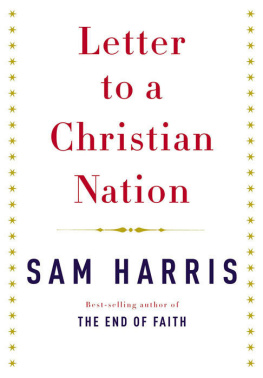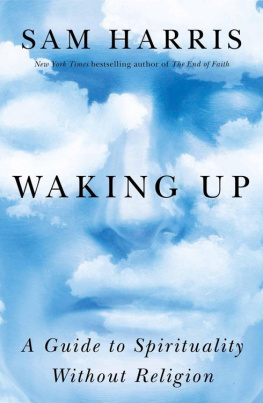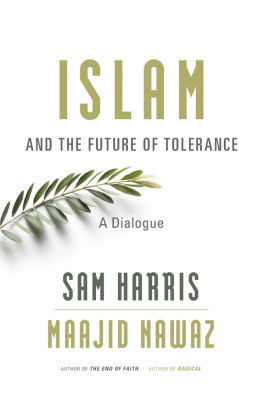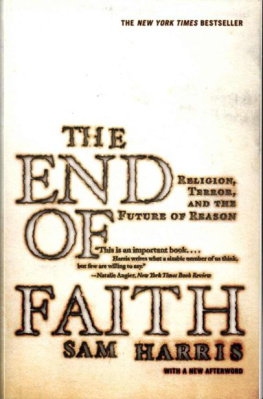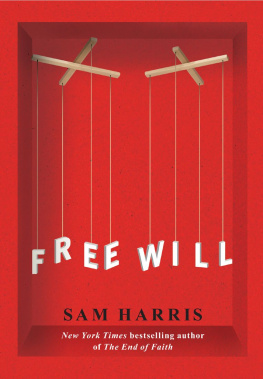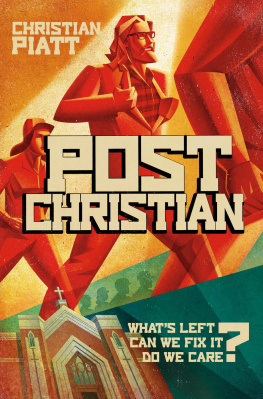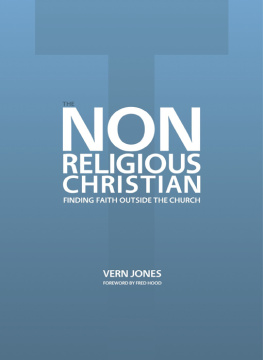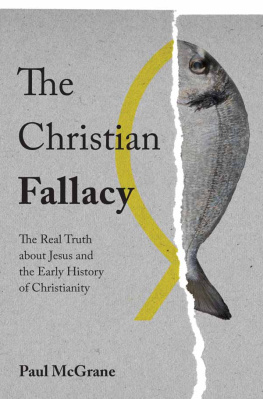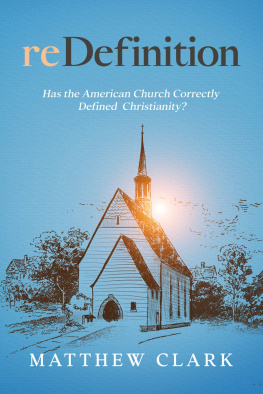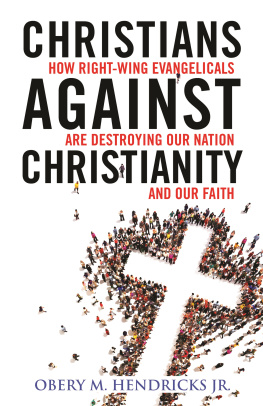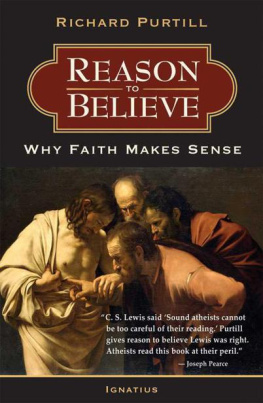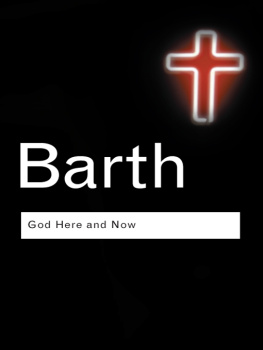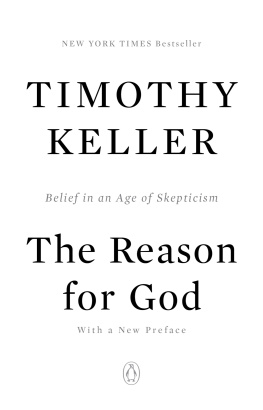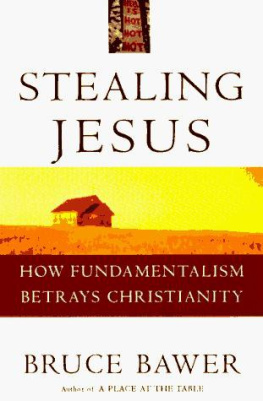Sam Harris - Letter To A Christian Nation
Here you can read online Sam Harris - Letter To A Christian Nation full text of the book (entire story) in english for free. Download pdf and epub, get meaning, cover and reviews about this ebook. year: 2007, publisher: Bantam Press, genre: Religion. Description of the work, (preface) as well as reviews are available. Best literature library LitArk.com created for fans of good reading and offers a wide selection of genres:
Romance novel
Science fiction
Adventure
Detective
Science
History
Home and family
Prose
Art
Politics
Computer
Non-fiction
Religion
Business
Children
Humor
Choose a favorite category and find really read worthwhile books. Enjoy immersion in the world of imagination, feel the emotions of the characters or learn something new for yourself, make an fascinating discovery.
- Book:Letter To A Christian Nation
- Author:
- Publisher:Bantam Press
- Genre:
- Year:2007
- Rating:3 / 5
- Favourites:Add to favourites
- Your mark:
- 60
- 1
- 2
- 3
- 4
- 5
Letter To A Christian Nation: summary, description and annotation
We offer to read an annotation, description, summary or preface (depends on what the author of the book "Letter To A Christian Nation" wrote himself). If you haven't found the necessary information about the book — write in the comments, we will try to find it.
Letter To A Christian Nation — read online for free the complete book (whole text) full work
Below is the text of the book, divided by pages. System saving the place of the last page read, allows you to conveniently read the book "Letter To A Christian Nation" online for free, without having to search again every time where you left off. Put a bookmark, and you can go to the page where you finished reading at any time.
Font size:
Interval:
Bookmark:
Since the publication of my first book, The End of Faith, thousands of people have written to tell me that I am wrong not to believe in God. The most hostile of these communications have come from Christians. This is ironic, as Christians generally imagine that no faith imparts the virtues of love and forgiveness more effectively than their own. The truth is that many who claim to be transformed by Christ's love are deeply, even murderously, intolerant of criticism. While we may want to ascribe this to human nature, it is clear that such hatred draws considerable support from the Bible. How do I know this? The most disturbed of my correspondents always cite chapter and verse.
While this book is intended for people of all faiths, it has been written in the form of a letter to a Christian. In it, I respond to many of the arguments that Christians put forward in defense of their religious beliefs. The primary purpose of the book is to arm secularists in our society, who believe that religion should be kept out of public policy, against their opponents on the Christian Right. Consequently, the "Christian" I address throughout is a Christian in a narrow sense of the term. Such a person believes, at a minimum, that the Bible is the inspired word of God and that only those who accept the divinity of Jesus Christ will experience salvation after death. Dozens of scientific surveys suggest that well over half of the American population subscribes to these beliefs. Of course, such metaphysical commitments do not imply any particular denomination of Christianity. Conservatives in every sect - Catholics, mainline Protestants, Evangelicals, Baptists, Pentecostals, Jehovah's Witnesses, and so on - are equally implicated in my argument. As is well known, the beliefs of conservative Christians now exert an extraordinary influence over our national discourse - in our courts, in our schools, and in every branch of government.
In Letter to a Christian Nation, I have set out to demolish the intellectual and moral pretensions of Christianity in its most committed forms. Consequently, liberal and moderate Christians will not always recognize themselves in the "Christian" I address. They should, however, recognize one hundred and fifty million of their neighbors. I have little doubt that liberals and moderates find the eerie certainties of the Christian Right to be as troubling as I do. It is my hope, however, that they will also begin to see that the respect they demand for their own religious beliefs gives shelter to extremists of all faiths. Although liberals and moderates do not fly planes into buildings or organize their lives around apocalyptic prophecy, they rarely question the legitimacy of raising a child to believe that she is a Christian, a Muslim, or a Jew. Even the most progressive faiths lend tacit support to the religious divisions in our world. In Letter to a Christian Nation, however, I engage Christianity at its most divisive, injurious, and retrograde. In this, liberals, moderates, and nonbelievers can recognize a common cause.
According to a recent Gallup poll, only 12 percent of Americans believe that life on earth has evolved through a natural process, without the interference of a deity. Thirty one percent believe that evolution has been
"guided by God." If our worldview were put to a vote, notions of
"intelligent design" would defeat the science of biology by nearly three to one. This is troubling, as nature offers no compelling evidence for an intelligent designer and countless examples of unintelligent design. But the current controversy over "intelligent design" should not blind us to the true scope of our religious bewilderment at the dawn of the twenty first century. The same Gallup poll revealed that 53 percent of Americans are actu-ally creationists. This means that despite a full century of scientific insights attesting to the antiquity of life and the greater antiquity of the earth, more than half of our neighbors believe that the entire cosmos was created six thousand years ago. This is, incidentally, about a thousand years after the Sumerians invented glue. Those with the power to elect our presidents and congressmen - and many who them-selves get electedbelieve that dinosaurs lived two by two upon Noah's ark, that light from distant galaxies was created en route to the earth, and that the first members of our species were fashioned out of dirt and divine breath, in a garden with a talking snake, by the hand of an invisible God.
Among developed nations, America stands alone in these convictions. Our country now appears, as at no other time in her history, like a lumbering, bellicose, dimwitted giant. Anyone who cares about the fate of civilization would do well to recognize that the combination of great power and great stupidity is simply terrifying, even to one's friends. The truth, however, is that many of us may not care about the fate of civilization. Forty four percent of the American population is convinced that Jesus will return to judge the living and the dead sometime in the next fifty years. According to the most common interpretation of biblical prophecy, Jesus will return only after things have gone horribly awry here on earth. It is, therefore, not an exaggeration to say that if the city of New York were suddenly replaced by a ball of fire, some significant percentage of the American population would see a silver lining in the subsequent mushroom cloud, as it would suggest to them that the best thing that is ever going to happen was about to happen: the return of Christ. It should be blindingly obvious that beliefs of this sort will do little to help us create a durable future for ourselvessocially, economically, environmentally, or geopolitically. Imagine the conse-quences if any significant component of the U.S. government actually believed that the world was about to end and that its ending would be glorious. The fact that nearly half of the American population apparently believes this, purely on the basis of religious dogma, should be considered a moral and intellectual emergency. The book you are about to read is my response to this emergency. It is my sincere hope that you will find it useful.
Sam Harris May 1, 2006 New York
You believe that the Bible is the word of God, that Jesus is the Son of God, and that only those who place their faith in Jesus will find salvation after death. As a Christian, you believe these propositions not because they make you feel good, but because you think they are true. Before I point out some of the problems with these beliefs, I would like to acknowledge that there are many points on which you and I agree. We agree, for instance, that if one of us is right, the other is wrong. The Bible is either the word of God, or it isn't. Either Jesus offers humanity the one, true path to salvation (John 14:6), or he does not. We agree that to be a true Christian is to believe that all other faiths are mistaken, and profoundly so. If Christianity is correct, and I persist in my unbelief, I should expect to suffer the torments of hell. Worse still, I have persuaded others, and many close to me, to reject the very idea of God. They too will languish in "eternal fire" (Matthew 25:41). If the basic doctrine of Christianity is correct, I have misused my life in the worst conceivable way. I admit this without a single caveat. The fact that my continuous and public rejection of Christianity does not worry me in the least should suggest to you just how inadequate I think your reasons for being a Christian are.
Of course, there are Christians who do not agree with either of us. There are Christians who consider other faiths to be equally valid paths to salvation. There are Christians who have no fear of hell and who do not believe in the physical resurrection of Jesus. These Christians often describe themselves as "religious liberals" or "religious moderates." From their point of view, you and I have both misunderstood what it means to be a person of faith. There is, we are assured, a vast and beautiful terrain between atheism and religious fundamentalism that generations of thoughtful Christians have quietly explored. According to liberals and moderates, faith is about mystery,
Font size:
Interval:
Bookmark:
Similar books «Letter To A Christian Nation»
Look at similar books to Letter To A Christian Nation. We have selected literature similar in name and meaning in the hope of providing readers with more options to find new, interesting, not yet read works.
Discussion, reviews of the book Letter To A Christian Nation and just readers' own opinions. Leave your comments, write what you think about the work, its meaning or the main characters. Specify what exactly you liked and what you didn't like, and why you think so.

